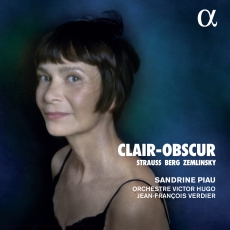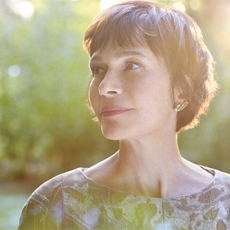Sandrine Piau - Clair-Obscur - Gramophone
On paper this new album from French soprano Sandrine Piau looks enticing enough. Listening to it, though, one realises quite what an inspired piece of programming it is. ‘Chiaroscuro … symbolises for me the richness of music,’ says Piau in a booklet adorned with carefully chosen artwork, ‘which, draped in mystery, creates matchless unions.’ And so it is with this juxtaposition of early Berg and late Strauss, preceded by Zemlinsky’s beautiful but rarely heard setting of Eichendorff’s ‘Waldesgespräch’ (notable for its unusual instrumentation and for featuring a more subtly seductive ‘Lorelei’ than in Schumann’s famous Op 39 setting).
There are literary threads running through the selection (not least between the Zemlinsky and Strauss’s ‘Im Abendrot’, also setting Eichendorff), but also an overarching engagement with the course of nature, a moving sense of the sensual potential and energy of Berg’s Early Songs transfigured, in Strauss’s Four Last Songs, into passion spent, hopes gently renounced, feelings recalled through a nostalgic lens. Or at least that’s the sense powerfully conveyed through these probing, intimate performances.
Piau’s voice is light and deftly controlled, and it’s matched beautifully by dappled orchestral accompaniment from the Besançon-based Orchestre ‘Victor Hugo’ and conductor Jean-François Verdier – certainly more ‘clair’ than ‘obscur’. Don’t expect the full glare of autumnal sunlight in this ‘Im Abendrot’ or high-tensile dissonance in the Berg. Instead, against a controlled orchestral canvas, Piau imbues everything with a tender humanity.
Berg’s songs quiver with anticipation – the underlying passion of ‘Die Nachtigall’ comes across beautifully, ‘Traumgekrönt’ teeters on the edge of euphoria, ‘Liebesode’ exudes sensuality – without Piau ever sounding pushed or taxed. And while her Four Last Songs is unlikely to dislodge anyone’s more luxurious current favourite, it is a deeply moving and effective performance in which one hears these wonderful works anew – thanks both to the freshness of the approach and to the context of the programming, with ‘Malven’, at the close, tentatively bringing us back to summer.
Highly recommended.

